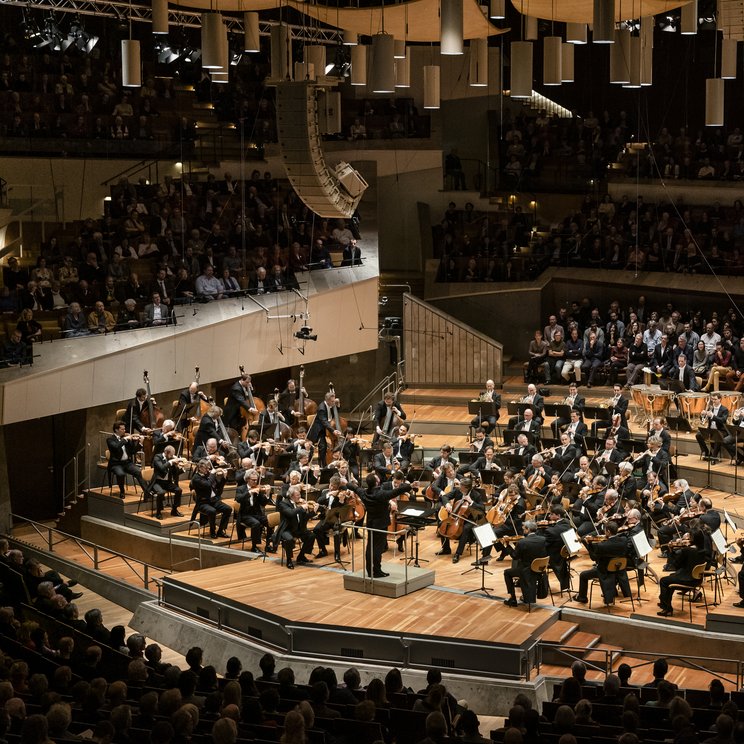
Berliner Philharmoniker
Vita
In 1882, 54 ambitious musicians in Berlin came together to form a new orchestra, organizing concerts under their own management: this marked the birth of the Berliner Philharmoniker. They appointed one of the finest conductors of the era, Hans von Bülow, to lead them. He was succeeded by Arthur Nikisch (1895–1922), Wilhelm Furtwängler (1922–54), and Herbert von Karajan (1956–89), who each profoundly shaped the orchestra’s sound and established its international reputation. From 1990 to 2002, Claudio Abbado brought new priorities, particularly through a focus on contemporary music. Sir Simon Rattle continued to expand the repertoire from 2002 to 2018 and introduced innovative concert formats. Kirill Petrenko has served as Chief Conductor since 2019. His artistic priorities include the Classical and Romantic repertoire, Russian music, and unjustly neglected works. Through its extensive education program, the orchestra reaches out to new audiences. Since 2021, the Berliner Philharmoniker and Petrenko have also served as ambassadors for the UN Refugee Agency for people displaced by conflict. Concerts have been streamed via the Digital Concert Hall since its launch in 2009. In 2014, the orchestra established its own label: Berliner Philharmoniker Recordings. The Philharmoniker also performs as an opera orchestra at its Easter Festival, which in 2026 will return to its original home in Salzburg with a new production of Wagner’s Ring cycle. The Berliner Philharmoniker Foundation is supported by the State of Berlin and the federal government, as well as through the generous commitment of its main sponsor, Deutsche Bank.
Lucerne Festival (IMF) on 30 August 1958 playing Beethoven’s Ninth Symphony under the direction of Herbert von Karajan.
For further information on this ensemble, visit their homepage at: www.berliner-philharmoniker.de
August 2025